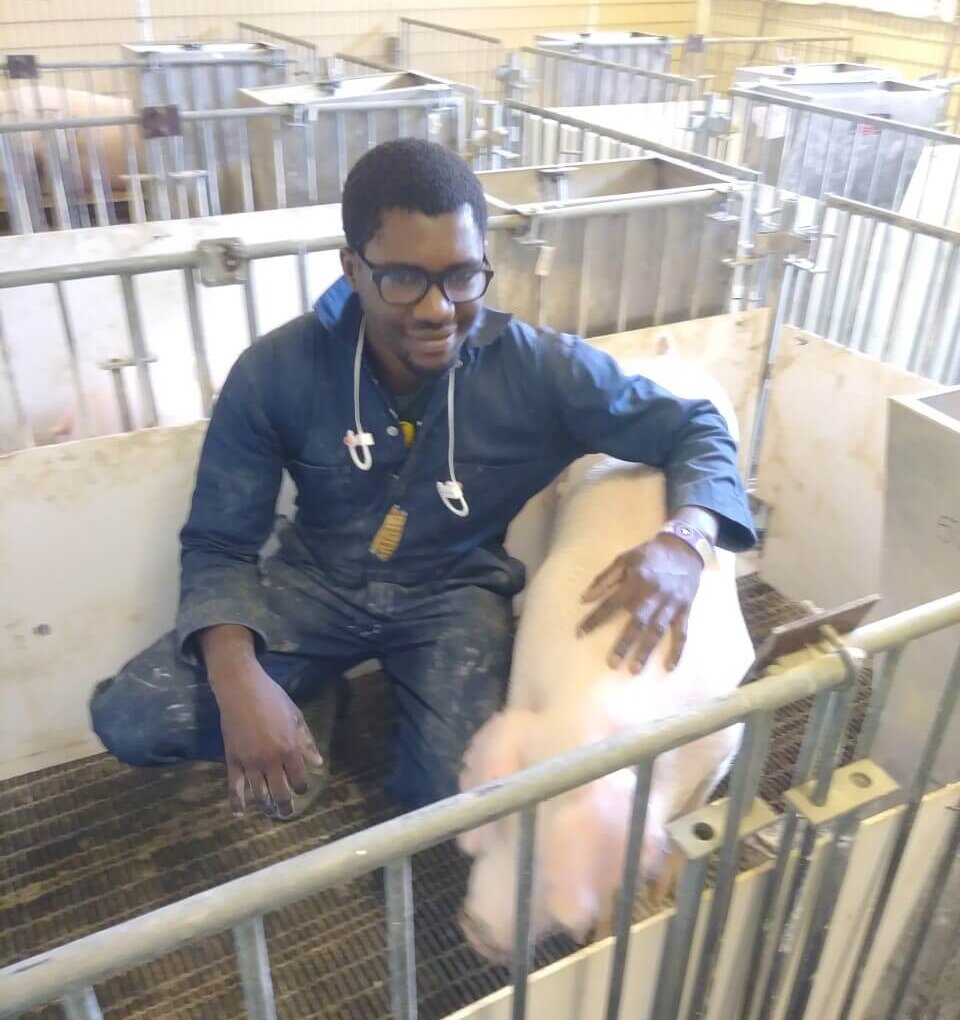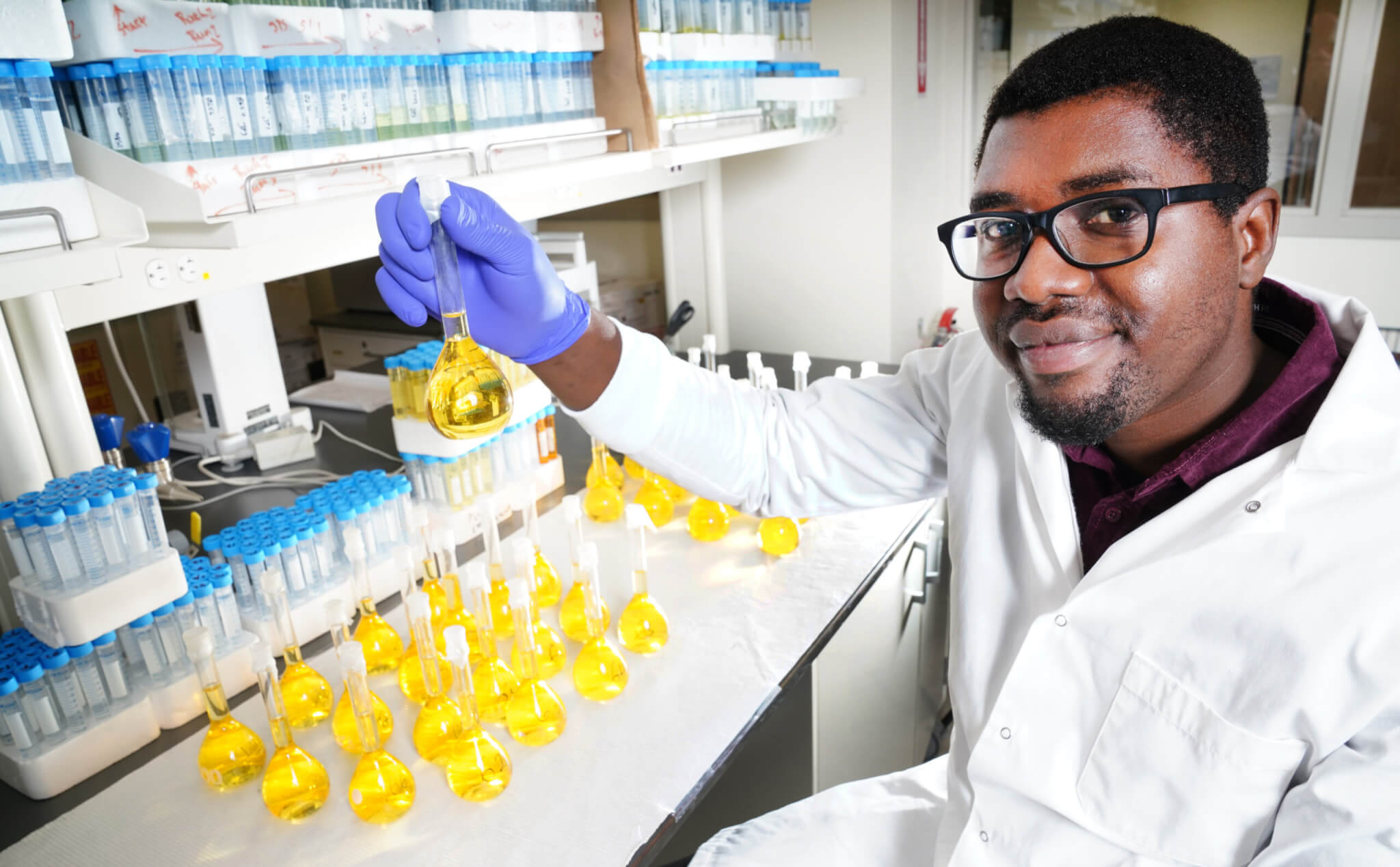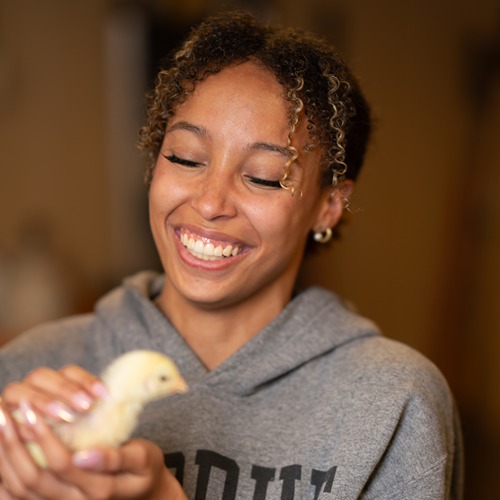Clean lab coats and muddy boots balance student’s research
"In every generation, there are new discoveries that shift the trajectory of the industry,” said Ayodeji “Ayo” Aderibigbe, a doctoral student in the Department of Animal Sciences. “That motivates me to work hard and be among a group of people who are dedicated to improving global food security. I want to be a problem solver, not just a solution announcer.”
Aderibigbe grew up in Lagos, Nigeria, where he became interested in science at a young age. Aderibigbe credits his parents, a medical doctor and a nurse, with his academic focus.

In his home country, Aderibigbe earned a bachelor’s and master’s degree in animal sciences.
“I always wanted to do research that benefits the world, my neighbors and my country,” shared Aderibigbe. “In Nigeria and many parts of the developing world, one of the main problems is food security. That drove my interest in increasing the food supply and led me to agriculture.”
At a conference during his final year of undergraduate study, Aderibigbe met Layi Adeola, a Purdue professor of animal sciences.
“I saw the dedication and passion he has toward his research in poultry and swine nutrition,” said Aderibigbe. “I always wanted to work in an environment like that.
“I walked up to him and said, ‘I’d like to do my Ph.D. with you.’ Five years later, I’m here.”
In part because Adeola is also from Nigeria, Aderibigbe came to regard him not just as an academic mentor, but also as a father figure who helped him acclimate to life in the United States.
“With admiration, I have watched Ayo grow in research ability and analytical skills.”
- Layi Adeola
“With admiration, I have watched Ayo grow in research ability and analytical skills,” said Adeola. “He has a positive attitude and takes corrections and suggestions very well. His growth has strengthened his confidence in his abilities and provided motivation to work hard at solving problems."

To find those solutions, Aderibigbe studies enzymes. “Poultry and swine represent a major proportion of the world’s livestock industry,” he explained. “One of the largest costs of production – about 70% – is feed.”
Through his research, Aderibigbe aims to improve livestock’s ability to take in nutrients and increase the digestibility of their feed through added enzymes. “This helps to improve the quality of the feedstuffs and the overall long-term health of the herd.”
By doing so, he achieves two objectives: optimizing animal performance and improving profit margins for producers.
Like his goals, there is a duality to Aderibigbe’s research. “At the research farm, I’m in coveralls and boots, super dirty and smelly,” said Aderibigbe. “In the lab, I look like a scientist in a lab coat.
“Once, I had to go directly to class from the farm. Nobody wanted to sit near me,” he recalled. Aderibige said he enjoys the differences between animal trials and lab analyses.
After completing his degree next year, Aderibigbe looks forward to a position in research and development in industry or a postdoc that could lead him to an academic position.






